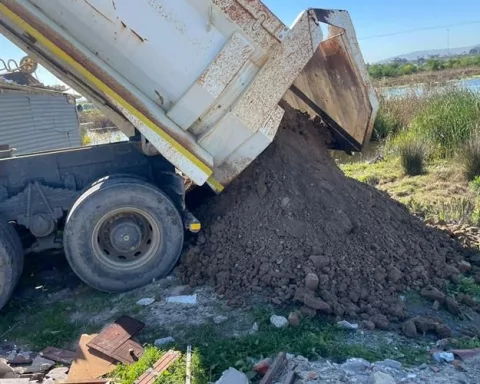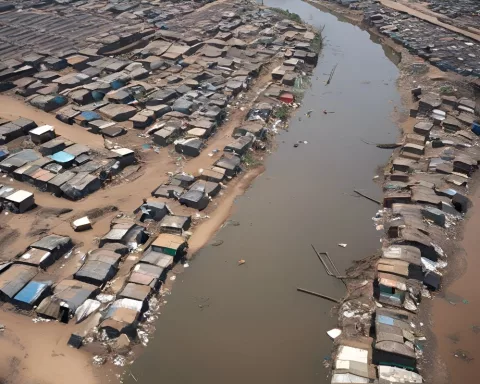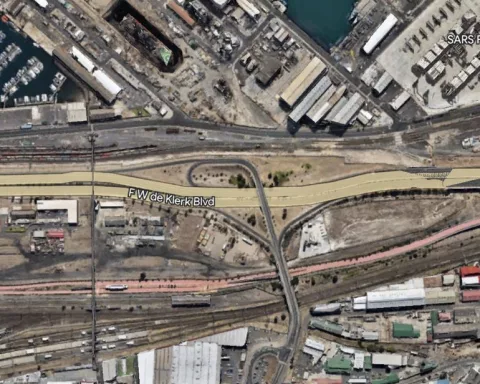Cape Town is investing R285.7 million to update and improve its waste management services, including the procurement of new machinery such as refuse compactors, trucks, generators, and street washers. This initiative will enhance the reliability and operational resilience of the service amidst persistent challenges such as load-shedding and illegal dumping. The city’s commitment to cleanliness and effective budget utilization is reflected in this project, which emphasizes the importance of timely equipment replacement and optimized repair and maintenance programs.
How is Cape Town reinforcing its waste management plan?
Cape Town is revamping its waste management services by allocating a budget of R285.7 million to procure new and replacement plant and machinery. This initiative aims to enhance the reliability and operational resilience of the service amidst persistent challenges, such as frequent load-shedding. The procurement plan includes refuse compactors, refuse trucks, fuel bowsers, standby generators, street washers, crane trucks, sleigh-articulated trucks, hooklift truck, and a dozer. The city’s commitment to cleanliness and effective budget utilization is reflected in this project.
Expediting Waste Management with New Tools
The Urban Waste Management Directorate of Cape Town is primed to revamp the city’s waste management services in the financial year 2023/24. The city has allocated a budget of approximately R285.7 million to procure new and replacement plant and machinery. This strategic move is aimed at addressing the need for reliable operations amidst the relentless urban growth the city is experiencing.
Alderman Grant Twigg, the City’s Mayoral Committee Member for Urban Waste Management, undertook a recent inspection trip to the Bellville Refuse Transfer Station situated at Sacks Circle. This visit was not just ceremonial, but an opportunity to scrutinize a portion of the equipment and vehicles already secured within the current financial year. The remaining vehicles from the ordered fleet are anticipated to arrive in the subsequent months spanning from February to June 2024.
The overarching objective behind procuring new machinery and equipment is not limited to merely replacing the older units. Contrarily, it is a well-thought-out strategy to enhance the reliability and operational resilience of the service. This is particularly crucial in the backdrop of persistent challenges, such as frequent load-shedding.
Unveiling the Extensive Procurement Plan
This year’s procurement plan is comprehensive. It encompasses 18 6×4 refuse compactors that are slated to replace the existing, aging fleet. On top of this, 10 4×2 refuse trucks are in the plan, which are destined to assist the Cleansing Department in curbing the issue of illegal dumping and litter.
Moreover, the city has intended to procure 3 fuel bowsers, each with a capacity of 7,000 litres. The purpose of these bowsers is to refuel standby generators during the various load-shedding phases. By doing this, the city will ensure the continuity of operational functionality. Two 800 kVA skid-mounted standby generators are also in the pipeline, which will provide a power supply at crucial operational sites during breakdowns.
The city’s commitment to cleanliness is also reflected in the plan to add 5 street washers and 7 crane trucks to its fleet. These vehicles will be deployed across the city’s geographical regions to maintain cleanliness.
Broadening Operational Efficiency with Diverse Vehicles
Moreover, the procurement plan includes 7 sleigh-articulated trucks, a hooklift truck, and a dozer. These vehicles are specifically selected for their operational relevance at landfills.
The budget allocated for this significant project is nearly R285.7 million. This well-planned initiative underlines the city’s dedication to effective budget utilization and timely equipment replacement.
Alderman Twigg elaborated on the importance of appropriate budget planning and equipment replacement in addressing the waste management issue. He underscored the potential repercussions of delayed refuse collection, which can catalyze illegal dumping in several communities.
Twigg also highlighted the financial and environmental health implications of vehicle breakdowns. He explained that such incidents can result in more significant costs than regular waste collection, setting off a chain reaction with substantial budgetary and environmental health implications.
Since his term began, Alderman Twigg has vehemently emphasized the importance of vehicle availability. His team has been relentlessly striving to maximize this, not just through procurement, but also by optimizing repair and maintenance programs.
In essence, the City’s investment in new plant and machinery is not merely an operational decision. It is a strategic move that speaks volumes about Cape Town’s commitment to managing waste effectively, fostering cleaner communities, and promoting a healthier environment for all its residents.
1. What is the budget allocated for Cape Town’s waste management plan?
The budget allocated for Cape Town’s waste management plan is approximately R285.7 million.
2. What new machinery is Cape Town procuring to enhance waste management?
Cape Town is procuring a range of new machinery, including refuse compactors, refuse trucks, fuel bowsers, standby generators, street washers, crane trucks, sleigh-articulated trucks, hooklift truck, and a dozer.
3. Why is Cape Town reinforcing its waste management plan?
Cape Town is reinforcing its waste management plan to enhance the reliability and operational resilience of the service amidst persistent challenges, such as load-shedding and illegal dumping, as well as urban growth.
4. What is the objective behind procuring new machinery and equipment?
The objective behind procuring new machinery and equipment is to enhance the reliability and operational resilience of the service, not just to replace older units.
5. How will the new fuel bowsers ensure operational functionality during load-shedding phases?
The new fuel bowsers will refuel standby generators during load-shedding phases to ensure continuity of operational functionality.
6. What is Alderman Twigg’s stance on appropriate budget planning and equipment replacement?
Alderman Twigg emphasizes the importance of appropriate budget planning and equipment replacement in addressing waste management issues. He underscores the potential repercussions of delayed refuse collection, which can catalyze illegal dumping in several communities, and highlights the financial and environmental health implications of vehicle breakdowns.












